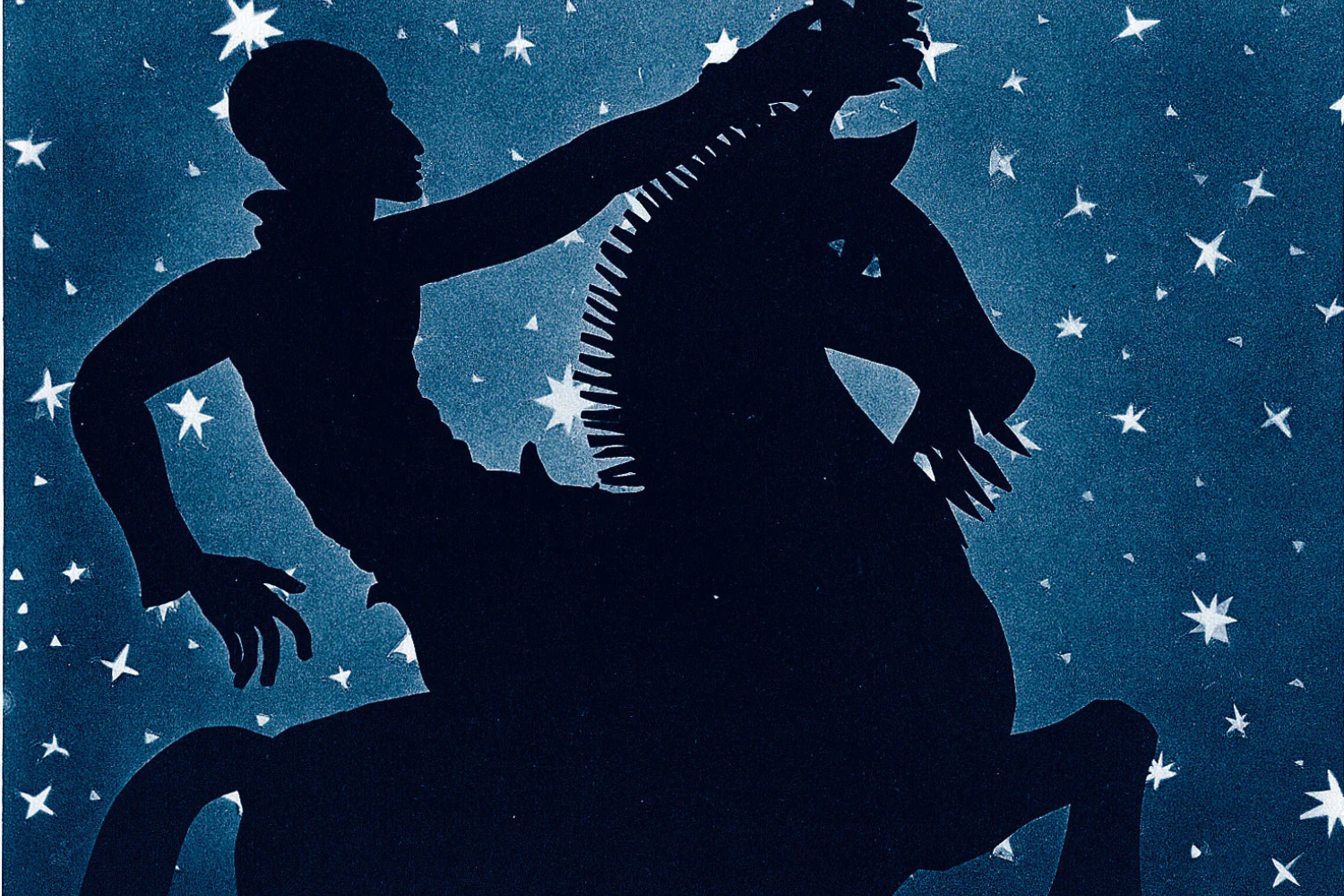

+ Google Map
pay what you wish
Get Tickets
Bowerbird is delighted to present a special screening of Lotte Reiniger’s pioneering animated film, The Adventures of Prince Achmed.
When The Adventures of Prince Achmed premiered in Germany on September 23, 1926, it was hailed as the first full-length animated film. More than seventy-five years later, this enchanting film still stands as one of the great classics of animation — beautiful, mesmerizing and utterly seductive.
Taken from The Arabian Nights, the film tells the story of a wicked sorcerer who tricks Prince Achmed into mounting a magical flying horse and sends the rider off on a flight to his death. But the prince foils the magician’s plan and soars headlong into a series of wondrous adventures — joining forces with Aladdin and the Witch of the Fiery Mountains, doing battle with the sorcerer’s army of monsters and demons, and falling in love with the beautiful Princess Peri Banu.
This cinematic treasure has been beautifully restored with its spectacular color tinting and with a new orchestral recording of the magnificent 1926 score by Wolfgang Zeller. Thrilling, sensuous and dazzling, Prince Achmed will enthrall children and film enthusiasts of all ages.
ABOUT THE ARTIST
Lotte Reiniger made over sixty films, of which eleven are considered lost and fifty to have survived. The film maker is best known for her pioneering silhouette films, in which paper and cardboard cut-out figures, weighted with lead, and hinged at the joints were hand-manipulated from frame to frame and shot via stop motion photography. The figures were placed on an animation table and usually lit from below. In some of her later sound films the figures were lit both from above and below, depending on the desired visual effect. Framed with elaborate backgrounds made from varying layers of translucent paper or colorful acetate foils for color films, Reiniger’s characters were created and animated with exceptional skill and precision.
In addition to producing silhouette animation films, Reiniger was equally engaged by live shadow puppetry, which was at times recorded on film and used in live-action films. For example, in 1933, Reiniger made a shadow play sequence for G.W. Pabst’s Don Quixote (1933). In 1937 she created “Le Pont Cassé,” which translates to “the Broken Bridge,” a short shadow play sequence filmed for Jean Renoir’s La Marseillaise (1938). This famed shadow play was the most popular piece by François Dominique Séraphin, founder of the Theatre Séraphin in Versailles in 1770. Reiniger’s filmed play emulated Séraphin’s style and was thus an homage to the roots of European shadow play.
- This event has passed.
